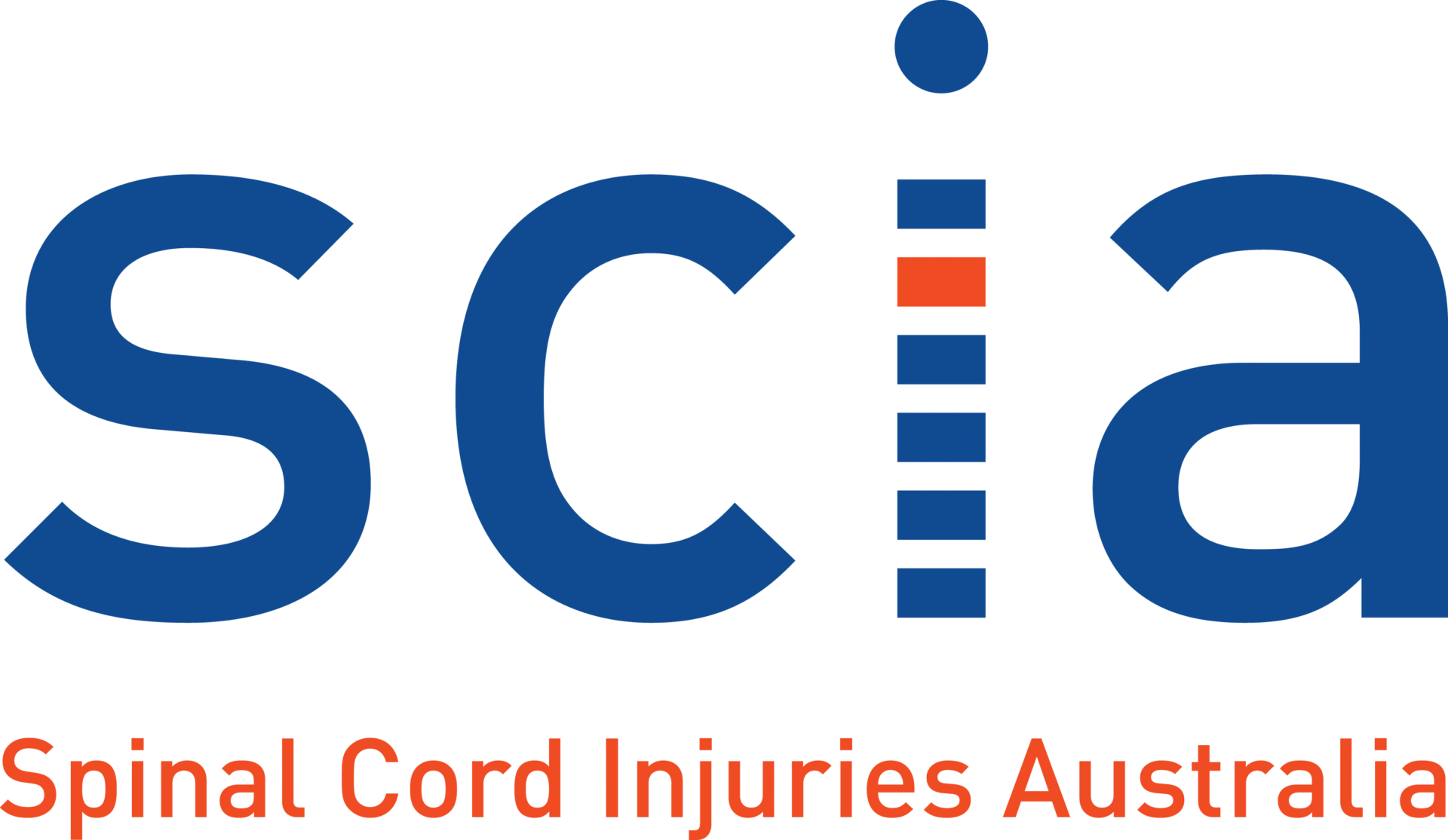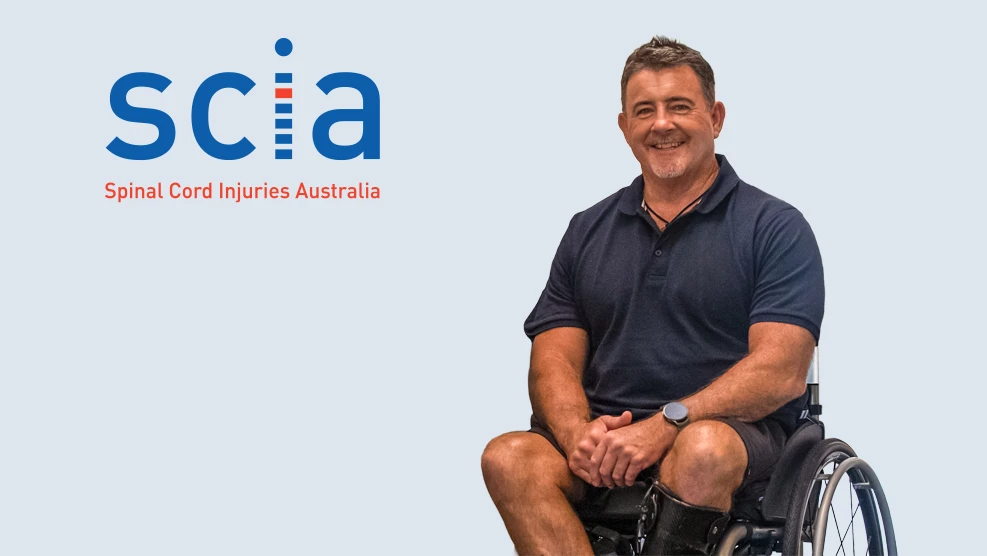Taking Action Yourself
Our Advocacy Advisory Group are constantly engaging with their communities through their Local Advocacy Community Networks, and our Advocacy team supports action on issues raised.
Sometimes advocacy can be done individually in a local community and sometimes a coordinated approach is required.
By taking action, people with disabilities and their support networks can challenge discrimination, raise public awareness and advocate for social change.
On this page you will find self-help information sheets and templates created by the team to help you advocate on some of the most frequently raised issues. You will also find a list of all of our local Advocacy events.
If there is an issue important to you, or if you would like to start an advocacy event in your local area, please contact us.

How to Take Action
Social action with your Local Council in New South Wales
Our advocacy community is growing and members in local areas are meeting to discuss local issues impacting them.
We are seeing local people wanting to do local advocacy on local issues. We explain the best steps when raising issues with your local council.
We hope that this is helpful for you. If you would like more information, please contact us.
Address your letter to the General Manager, as the head of the council business operations, as well as the Mayor. You can include both in the title.
Think about what the issue is and how it concerns you and include all relevant information. It’s just a matter of setting out those concerns in a simple letter.
Navigate to section three to see an example letter you can use when writing to your local council.
View an example of how you can write to your local council. If you want advice or information from our Advocacy team, please contact us:
Unfortunately, the NSW Disability Inclusion Act legislation provides no guidance, information or penalties if a public authority or local council fails to review its DIAP within the four year time period. However the legislation specifies that in preparing a DIAP, the public authority “must consult with people with disability […]”. [Disability Inclusion Act 2014, Section 12(2)(a)]
Noting this, it’s therefore important that people engage with councils to hold them accountable to the measures they have outlined in their DIAP:
1. Whether the local council is in the process of consulting on their DIAP or not, direct specific questions on the DIAP, outline any relevant access issues you have encountered and list them. Ask for updates on the steps outlined in the DIAP. Challenge any discrepancies.
2. Contact your local councillor or the mayor and take the matters up with them.
3. If there are any ongoing barriers that impede your right to participate in the local community consider making a formal complaint by writing to the council and address it to the mayor and/or general manager (you will be able to find this information on the council website).
4. If after making a formal complaint, and the matter has not been addressed, consider making a complaint with Anti-Discrimination New South Wales. It has responsibility for administering the Anti-Discrimination Act 1977, and plays an important function in answering inquiries, and investigating and assisting parties to resolve complaints. Read more on this link about disability discrimination.
Social action to address Social Housing in New South Wales
Our Advocacy team has heard many frustrating stories from public housing tenants trying to get repairs and maintenance done on their homes, with long delays or even inaction from Housing NSW.
As a tenant, you have the same rights as anyone. You are essentially renting a home from the NSW government. They are your landlord, but under the Residential Tenancies Act 2010 (NSW) you have legally enforceable rights as a tenant.
As the landlord, Housing has obligations to tenants to maintain dwellings and carry out repairs in a timely fashion.
If you need additional information or support about this resource, please contact us.
1. The first step is to consider putting in an application to the New South Wales Civil and Administrative Tribunal (NCAT).
NCAT can make orders in tenancy and social housing cases such as the payment of money, repair work to be completed, access and privacy, and the keeping of animals.
2. You can download an application form or complete it online. If you haven’t previously submitted an online application, you will need to register your details by providing your name and all of your contact details. Click for instructions on how to apply.
Once you registered you can fill in an application as an individual (as the Applicant in the form). You will also need to identify and list Housing NSW in your application form as your landlord by using their official name of New South Wales Land and Housing Corporation (they are the Respondent).
3. You will need to pay a fee of $62 when making an application with NCAT but there are significant discounts for concession card holders. Once you have submitted your application, tenancy and social housing cases are first listed for conciliation and hearing. Don’t be concerned about these processes. NCAT is set up to allow people to work through solutions to problems. Conciliation is an alternative dispute resolution process where the people in dispute talk about their issues in an informal, private meeting with the aim of reaching an agreement.
4. The Tribunal Member will ask all parties to attempt to reach an agreement through conciliation. You will be directed to a conciliation room or area outside the hearing room. There will be a representative from Housing NSW to speak on their behalf. Both parties will work with the conciliator to work towards reaching an agreement, if that’s possible. So, as an example, Housing might agree to make important repairs to your home within a certain period of time.
5. The Tribunal Member can make orders against Housing if there have been clear breaches of the Residential Tenancies Act, particularly if it has not maintained the home and kept up with repairs as any landlord must uphold.
6. Within the Residential Tenancies Act 2010 (NSW), the landlord (Housing) has obligations under section 52 to maintain the premises “in a reasonable state of cleanliness and fit for habitation by the tenant” and under sections 63 and 64, to carry out reasonable repairs.
7. The NCAT website has lots of information to explain all of the processes, including a list of fact sheets.
If you are looking for some help about your housing circumstance, contact Tenants Advice & Advocacy Services (TAASs) for free information, advice, and advocacy to NSW renters. TAASs assist renters in private rental housing, social housing tenants, boarders, lodgers, and land lease community residents. The Network brings together the skills and expertise of highly skilled Tenant Advocates who work to ensure quality professional advice and advocacy is available to all renters in NSW.
There are 15 generalist TAASs, 4 specialist Aboriginal TAASs and a specialist resourcing body for the Aboriginal TAASs.
Each is run by a local non-government organisation.
Social action for access to exercise therapy in the NDIS
Understanding Exercise Therapy in the NDIS for people with SCI and other neurological conditions.
Members have raised concerns about exercise physiology no longer being funded under the NDIS.
In this section we explain what is and isn’t funded under the new NDIS (Transitional) Support Rules and why it is important for you to understand and how to explain why you need exercise therapy (or any other support).
If you need additional information or support about this resource, please contact us.
Several members have raised concerns about exercise physiology no longer being funded under the NDIS.
Recent changes to the NDIS and the new Legislation Getting the NDIS Back on Track includes a list of funded and not funded supports.
Currently the (transitional) “out list” explains that the NDIS will not fund:
“General health, fitness, social or recreational activity costs or services” or “Membership and entry to a recreational club and standard gym equipment”.
Consultation on these lists is ongoing, because in some cases excluded items can provide cost-savings and assistance with activities of daily living, particularly in regional and rural areas where alternative services are limited or non-existent. We are one of the organisations providing feedback.
However, in the (transitional) “in list” the NDIS states they will fund:
“Supports that maintain or increase physical mobility or well-being through personal training or exercise physiology to address the functional impact of the participant’s disability. This includes; accessing services from an appropriately qualified professional, assessment and development of a personalised exercise program which aims to increase or maintain a participant’s functional capacity, maintenance of muscle strength, range of motion, balance and mobility”. As well as “Supports that specialist allied health services and supports that facilitate enhanced functioning and community re-integration of people with recently acquired severe conditions including newly acquired spinal cord and severe acquired brain injury”.
A spinal cord injury (SCI) is a lifelong injury for which physical activity produces known outcomes.
We have a Policy Brief outlining the evidence based and tested benefits of physical activity for people with SCI in improving and maintaining their physical capacity, mental health and overall community participation.
As the NDIS changes and employees (internal and external to the NDIS) begin to understand the NDIS Supports Rules (“in and out lists”), it is important for people with SCI and other neurological conditions to understand the rules and be able to explain the purpose of their exercise therapy.
Usually in the case of a person with SCI or a similar neurological condition, exercise therapy is about the maintenance of capacity, ongoing independence and participation.
Members explain that exercise therapy is the key to continuing their everyday activities. Things such as “maintaining the strength to be able to look after grandchildren”, “preserving shoulder strength for everyday activities” or “maintaining and improving balance to prevent falls and remain independent in my home” are all very valid funding needs under the NDIS.
There a lot of confusion about the changes and the “in / out lists”, however they do not exclude targeted exercise therapy that aligns to an NDIS goal.
Participants and therapists such as Occupational Therapist, Physiotherapist, Exercise Physiologists must explain their needs in relation to their maintenance and development goals for therapy to be funded under the NDIS.
Reports from treating professionals should be attached as supporting documents.
Not all NDIA staff will understand your condition, so it is important that you and your health professionals explain the benefits and why it is important for maintaining ongoing physical strength and health needs.
In your first plan, or prior to your current plan ending, it is helpful to engage an Occupational Therapist for an assessment to explain your functional impairment (such as spinal cord injury), circumstances and provide you with expert evidence of your needs so that you can achieve your goals.
If you feel that you your needs have not been met in your plan you have three months in which you can request an Internal Review by in various ways:
- Completing the Request for a Review of a Decision Form
- Sending an email with supporting evidence or
- Calling the NDIS or visiting an NDIS Partner Office.
For detailed information on this process please contact us to get a copy of our help sheet NDIS: Steps for Pursuing Positive Outcomes.
Your NDIS Planning meeting is an opportunity to explain your needs and goals.
You can have this meeting in person, on the phone or sometimes via video call. It is your opportunity to clearly go through every aspect of your needs and explain how your requested supports meet your needs and goals.
It is very important that you explain this clearly and provide assessments, reports and evidence at this meeting.
Utilising the following format to explain how you use your exercise therapy to help you achieve your NDIS goals and maintain your independence will help decision makers understand the request relates to your disability.
Pursuing Positive Outcomes on your NDIS Journey
Section 1 explains the basics of applying to the NDIS. Section 2 looks at the mechanisms for seeking changes to NDIS plans, including explaining the review pathways. Section 3 covers further NDIS processes, including complaints, the role of the NDIS Commission and steps for seeking advocacy.


